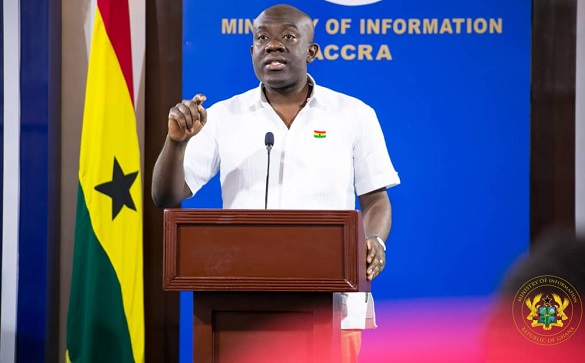
All must support successful implementation of RTI law
The right to information is one of the fundamental human rights guaranteed by the 1992 Constitution.
Article 21 Clause 1(f) of the 1992 Constitution stipulates that “all persons shall have the right to information, subject to qualifications and laws as are necessary in a democratic society”.
However, for more than 26 years, this constitutional right was almost non-existent due to the absence of a law that will provide the guidelines to access information.
It was, therefore, good news and a milestone for the country’s democratic dispensation when Parliament passed the Right to Information (RTI) Bill into an Act of Parliament, the Right to Information Act, 2019 (Act 989), on March 26, 2019, more than 20 years after the bill was first introduced in the legislature.
President Nana Addo Dankwa Akufo-Addo gave Presidential assent to the bill to become law on May 21, 2019 to demonstrate his commitment to effective democracy and open governance.
The RTI Act is not the law that guarantees the right to information; that is already guaranteed under Article 21 Clause 1 (f) of the 1992 Constitution. The RTI Act shows the procedure and processes one must go through before he or she can access information.
The act came into effect on January 2, this year and it was the expectation of the Daily Graphic that before its operationalisation, all the necessary measures to ensure its smooth implementation would have been put in place.
It, however, seems this is not the case.
During a press briefing last Sunday, the Minister of Information, Mr Kojo Oppong Nkrumah, admitted that the RTI Commission was yet to be sworn into office, while the lack of funds had also delayed the provision of office space for the commission.
The importance of the RTI Commission to the successful operationalisation of the RTI Act cannot be underestimated.
Per Section 41 of Act 989, the commission must promote, monitor, protect and enforce the right to information.
It is also tasked with resolving complaints with regard to people’s quest to get information under Act 989.
Although the minister explained that nothing stopped people from applying for information under Act 989, since the law is now in force, the Daily Graphic believes that without the RTI Commission, the implementation of Act 989 would be problematic.
We laud the government for showing the political will that brought the RTI Law into being and we urge it to go a step further and show more commitment to the successful implementation of the law.
Also, we call on the government to step up public education to enable the citizenry to know what information they can access and how and where they can access that information under the RTI Law.
The law, as it has been promulgated, has many exemption clauses that make certain forms of information inaccessible.
These include information bordering on national security, law enforcement, the economic interest of the country, as well as information that will harm the country’s international relations, information for the President, the Vice-President, the Cabinet, privileged information and personal matters, such as the health status of individuals.
Without effective public education, how will people know the type of information can be elicited? The public must, therefore, be educated in order not to create confusion.
The Daily Graphic is of the belief that the RTI Act, 2019 (Act 989) will go a long way not only to stem perceived corruption in the country but also inject efficiency in the governance of the country.
Let us endeavour to make the RTI Act 2019 (Act 989) work effectively.
